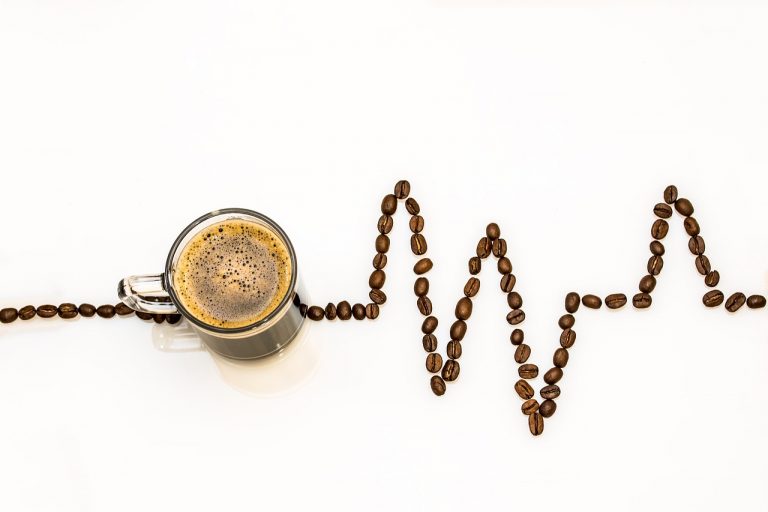We have been struggling with myths about coffee for hundreds of years, but nowadays we can use scientific research. Scientists try to check whether coffee actually affects the heart, causes insomnia, but also examined its relationship with the size of women's breasts, weight loss or potency.
- What is coffee? A short history of the most important drink in many people lives!
- 1. Coffee and cardiovascular diseases
- 2. Coffee and potency
- 3. Coffee and slimming
- 4. Coffee and pregnancy
- 5. Coffee and feminine bust
- 6. Coffee and sleep
- 7. Coffee and digestion
- 8. Coffee and the medicines
- 9. Coffee and stroke and diabetes
What is coffee? A short history of the most important drink in many people lives!
Coffee is a drink from properly prepared coffee beans. It comes from Ethiopia and when coffee came to Europe, sellers of other drinks tried to destroy competition at the start and spread the most bizarre information about it. Newspapers reported that coffee is not a decoction of overseas plants, but for example, "soot syrup made" or "odious decoction of old shoes". The church condemned the drinking of coffee and proclaimed it a sinful pleasure.
Research on the effects of coffee and tea on the body was carried out a long time ago. Apparently the king of Sweden Gustav III decided to check personally the harmfulness of these, but not on his own body. The two condemned twins were sentenced to life imprisonment, provided that each of them would drink several cups of drink every day - one coffee and the other tea. In addition to these beverages, they had the same decent living conditions. The experience was to find out which one would live longer and in what agonies he would die. Years passed, and the gentlemen lived quite peacefully, though in a close. A doctor supervising prisoners died, then another, and finally, Gustav III also left. The twins were still alive. The first of them died at the age of 83 - the one who drinks tea. As you can see, coffee does not kill or contribute to premature death.

1. Coffee and cardiovascular diseases
Coffee is neither good nor bad. Today we know that the individual reaction of people to the coffee is extremely different, if only because each of us is different. In the years 1968 - 1988, English scientists studied about 2 thousand. men, office workers of a company. It turned out that those gentlemen who drank more than six cups of coffee a day were 71 percent. more likely to suffer from heart disease than their colleagues. In 1987, American scientists observed the effects of passionate coffee drinking in 6,000. people. They did not notice a significant influence of the drink on cardiovascular diseases. There have been many researches conducted all over the world, and the conclusion is one - one who drinks coffee and likes it rather is not exposed to its negative impact and people who feel worse after having coffee should avoid it. Revealing!
2. Coffee and potency
In Cambodia, the researchers concluded that excessive coffee intake could adversely affect a man's potency. This is because one of the chemical compounds present in the coffee brew is a special vegetable hormone, similar to estrogen - female sex hormone. Drinking constantly 3-4 cups of coffee causes slow, but yet lowering potency in men. Excess of these hormones in the male body contributes to a more intense abdominal and breast growth. But the Brazilians emphasize that one coffee drunk by a young man before a date can have a very positive effect on the male body. For some gentlemen, the smell of coffee is enough to be ready for seduction. Sperms of a man who drank his unique cup of coffee, have greater mobility, so they increase the chances of conceiving a descendant.
3. Coffee and slimming
Caffeine actually affects the release of fat stored in the body, but it will be helpful in slimming only under certain conditions. Already in 10 minutes after drinking it, the body begins to burn about 13% more calories!. But to make it happen, you have to move. Staying at rest and drinking even a few dozen cups of coffee will not do us any good. Unfortunately, only energetic people with a stable, strong nervous system will achieve a positive effect. Those who are calm, with a weak nervous system after coffee, calm down, even fall asleep. The caffeine will not accelerate fat burning. Coffee consumed during meals does not affect the increase in fat burning, but slows fat digestion.

4. Coffee and pregnancy
Irish scientific research proves that pregnant women need not be denied drinking coffee, but it is worth reducing its consumption - up to 100 mg of caffeine per day. Exceeding this dose may lead to complications. In the early stages of pregnancy, it may result in a miscarriage (risk increase by 15%), and in later months, premature or at risk of delivery, with indications for caesarean section and low birth weight of the child. Because caffeine is the culprit here, pregnant ladies should also limit other beverages containing it.
5. Coffee and feminine bust
Swedish researchers are convinced that drinking coffee affects the size of women's breasts. The more coffee you drink, the lower the chance of a bust. The reducing effect begins after regularly dripping three cups of coffee a day. In 60 percent. the breast examined showed a reduction in breast size by an average of 17%, while other body parameters did not change. It turns out that these ladies have a special caffeine-responsive gene, whose growth to a certain level activates its "decreasing" effect. But it is not worth worrying, because the same gene also affects the blocking of cancer cells.
6. Coffee and sleep
In fact, caffeine weakens the process of falling asleep, but for people with low blood pressure it has calming effect - making it easier to fall asleep. If someone is suffering from insomnia, he should refrain from drinking any drinks containing caffeine and theine (present eg in tea) for six hours before bedtime. Caffeine is an alkaloid which in small doses has a strengthening, stimulating effect, and in larger doses it releases unpleasant feelings, it can even depress. To affect the body positively, do not take more than 250 mg at a time. This dose will be contained in about two teaspoons of tea ground coffee brewed in a glass of water. Because coffee is a complex combination of many organic chemicals, it works differently than pure caffeine.
7. Coffee and digestion
The organic acids contained in the coffee infusion affect the individual organs of the digestive system. About half an hour after drinking coffee, the acidity of gastric juice reaches its maximum. Coffee also increases the secretion of bile. It speeds up the process of digestion, faster assimilation of food. That's why coffee is often served after a meal. But such high acidity may increase heartburn, cause pains in people with hyperacidity, peptic ulcer disease of the stomach or duodenum. Coffee also intensifies intestinal peristalsis, so after morning coffee so many people run to the toilet.
8. Coffee and the medicines
Drugs should not be taken with coffee, drinks containing caffeine and definitely not grapefruit juice. The effect of some medications is increased by coffee while others inhibit it. Studies show that a dozen of drugs (eg anti-depressants, estrogen tablets, osteoporosis remedies, thyroid healing agents) change their action under the influence of coffee. Their effects are reduced by up to 60% when the coffee is consumed shortly before or after taking the drug. There are also prescription preparations that can enhance the effect of coffee and caffeine-containing beverages. These include some antibiotics, oral contraceptives and antidepressants that block the cytochrome P450 1A2 enzyme in the CYP1A2 gene. Caffeine is broken down with the help of this enzyme. As a result of these drugs, it can stay in the body longer than usual (up to four hours) and, for example, cause sleep problems.
9. Coffee and stroke and diabetes
Coffee enthusiasts are more vulnerable to stroke, researchers from the UK have said. It turned out that the amount of coffee being drunk or its type does not matter. Researchers checked the results from 12 years of research. After taking into account such important body parameters as eg excessive weight, tea drinking, smoking, pregnancy, blood pressure, cholesterol, etc., researchers noticed that as much as 71 percent. coffee enthusiasts risk a stroke. Consolation should be noted that coffee protects against the development of type II diabetes, but the strongest protective properties are shown by the one containing caffeine.

Tags: caffeine, coffee, healthy coffee






